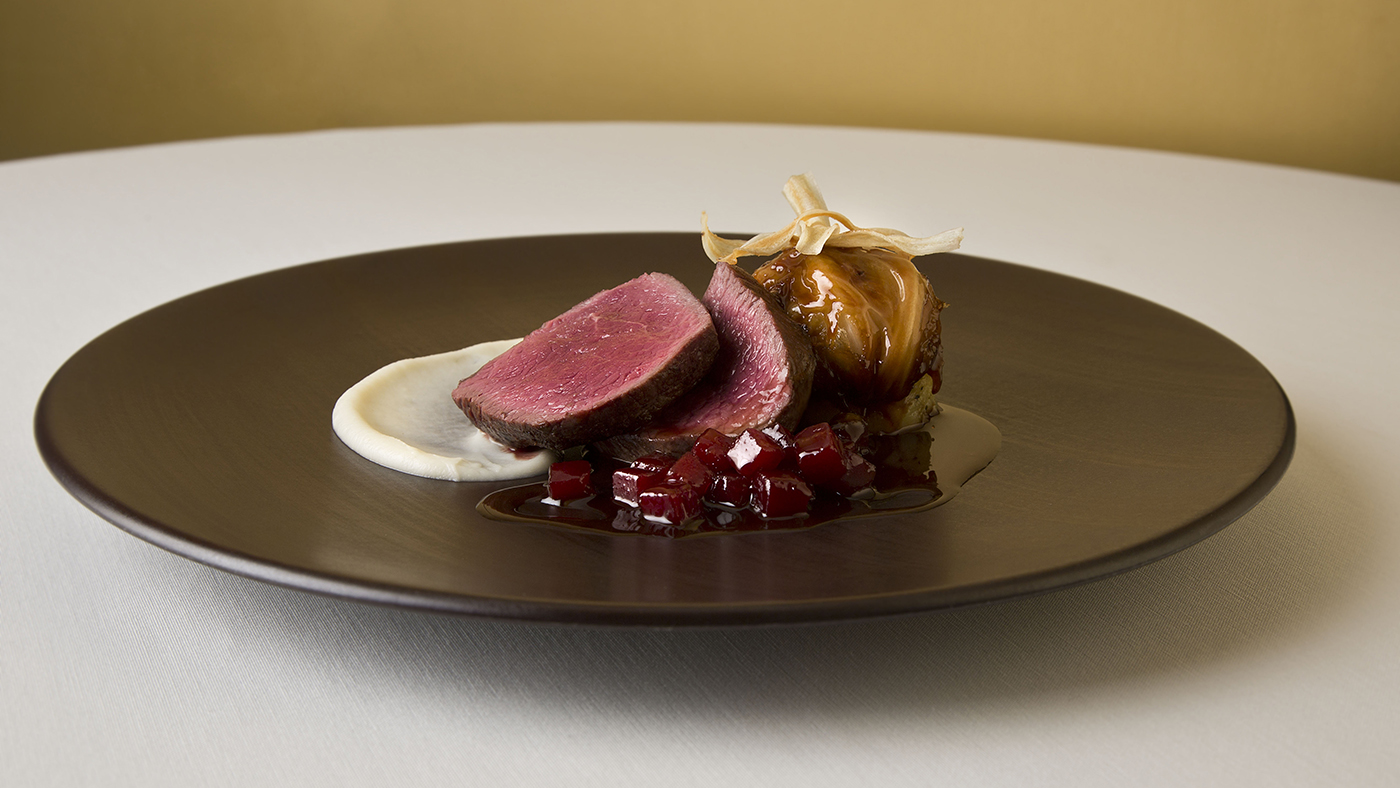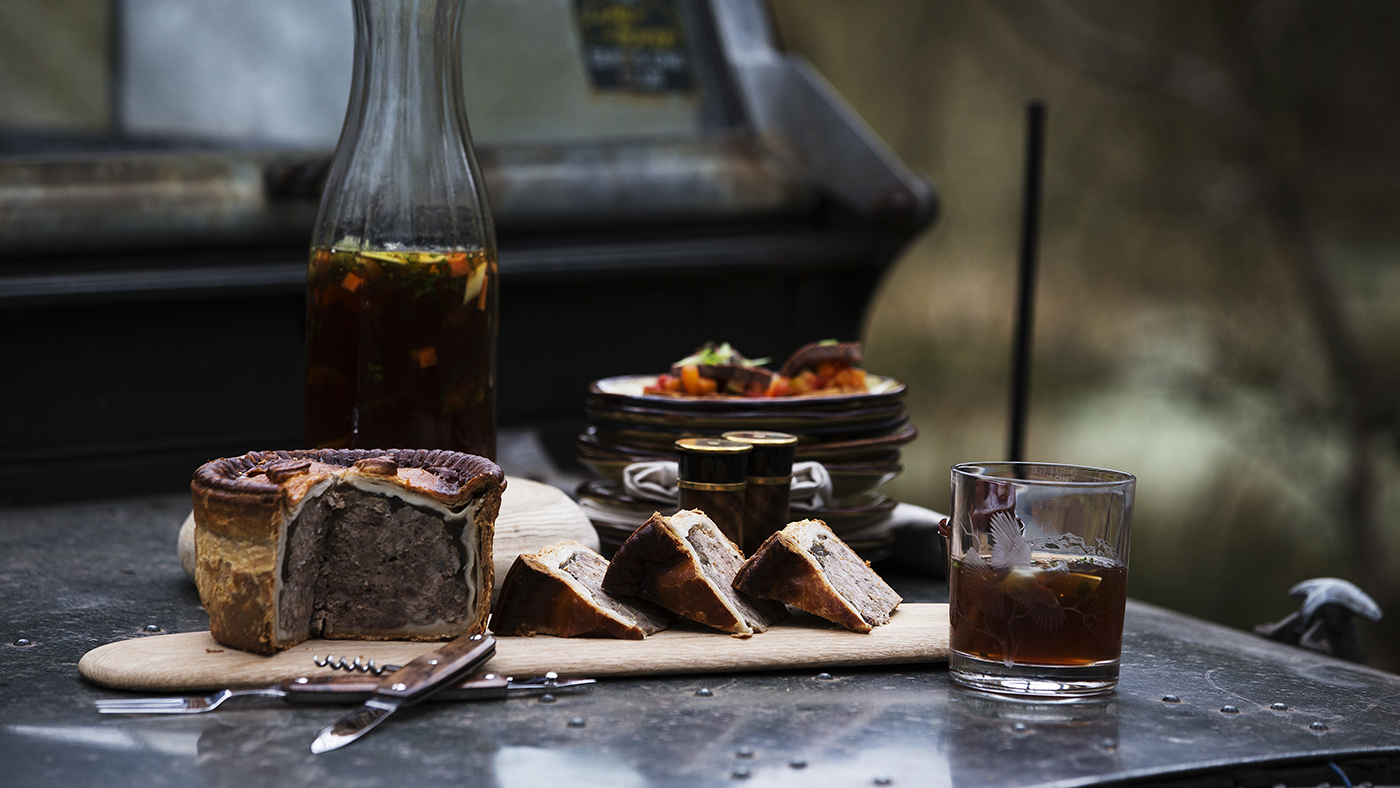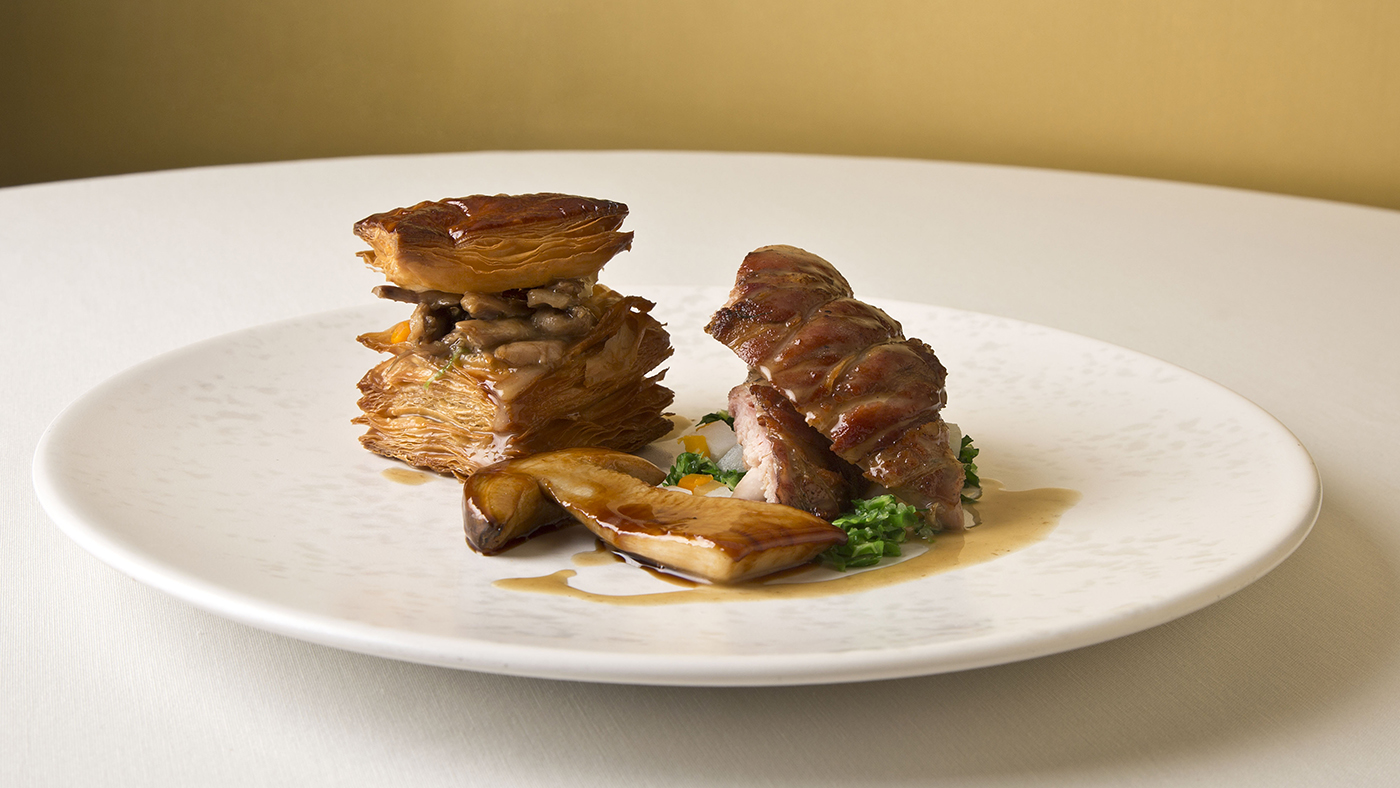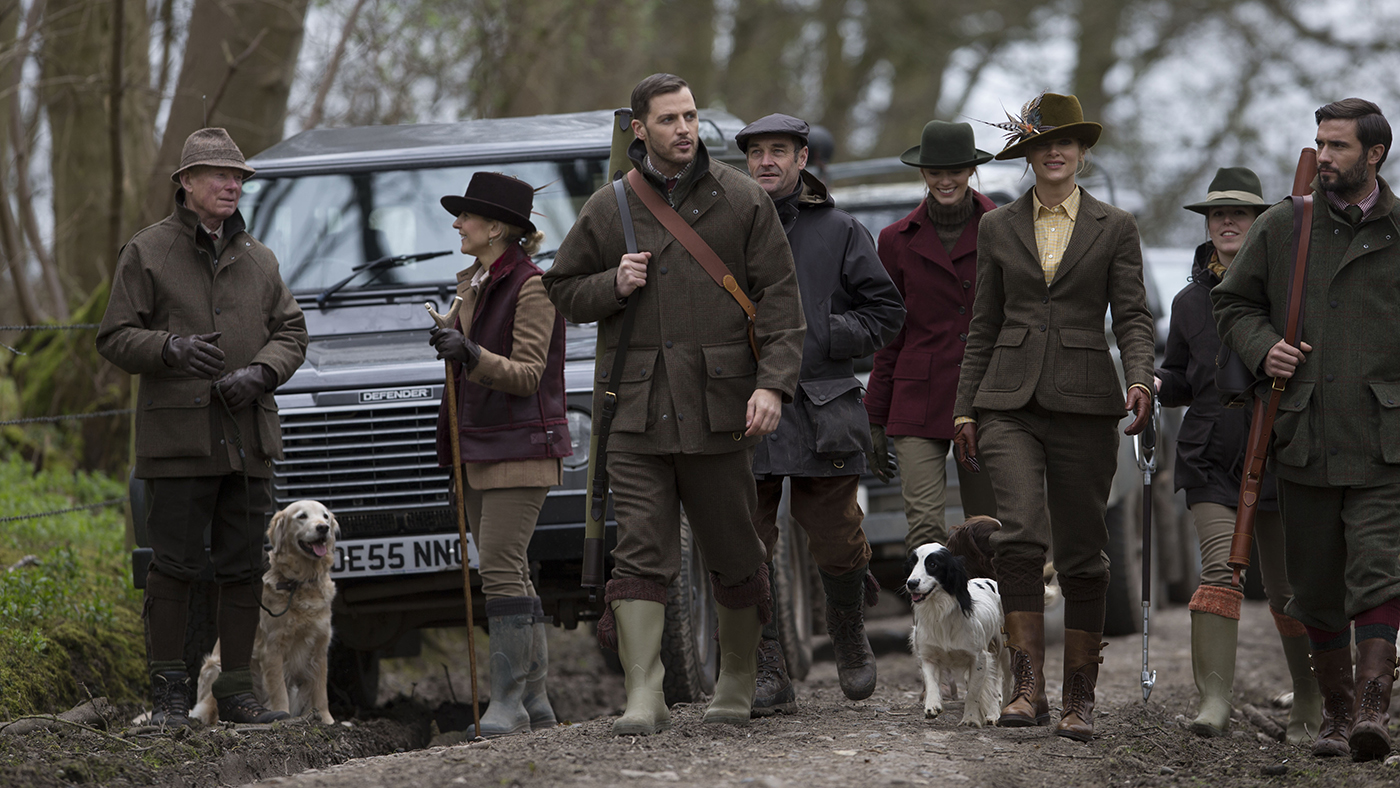William Drabble: Game on
The Michelin-starred chef offers his advice on cooking the fare featured in St James's Hotel and Club's shooting-lesson-and-dinner package

A free daily email with the biggest news stories of the day – and the best features from TheWeek.com
You are now subscribed
Your newsletter sign-up was successful
My earliest encounters with game were as a child, when I moved from Liverpool to the Norfolk countryside. I would earn a little bit as a beater on pheasant shoots on farms. In terms of cooking, I really got to understand it when I worked in the Lake District and found a fantastic butcher who got hold of the very best. I still work with him today – as well as game, he provides all the sausages, bacon and black pudding for the hotel.
What I love about game is it's an ingredient that can speak for itself in a dish. And, if you think about the environment in which these animals live and eat, the flavours come through in the meat and suggest how to accompany it. I haven't had much personal experience of shooting – I was once taken to a chateau in the Loire Valley where they'd landscaped three lakes in different ways to attract specific birds. I just stayed away from the guns and stuck to cooking the mallards in the evening.

William Drabble's game tips
The Week
Escape your echo chamber. Get the facts behind the news, plus analysis from multiple perspectives.

Sign up for The Week's Free Newsletters
From our morning news briefing to a weekly Good News Newsletter, get the best of The Week delivered directly to your inbox.
From our morning news briefing to a weekly Good News Newsletter, get the best of The Week delivered directly to your inbox.
Pheasant: Pheasant has quite a delicate flavour so it's good to wait till the end of October before you start buying it, when it'll be a bit stronger. Make sure you don't overcook it – the easiest way to avoid that is to poach it in stock. If you don't already have pheasant stock, you can use chicken, with lots of vegetables and herbs in it. Drop in your pheasant, make sure it's well covered by the liquid and bring it back to the boil, then drop the heat and let it cool in the water – that'll be enough to cook it and it will be nice and moist. Some people soak pheasant in brine, seal it and crisp up the skin, then leave it in the oven to slow-cook at 90C.
Grouse: In early autumn, grouse has an intense gamey flavour and a much darker meat than pheasant, thanks to its diet of heather and berries. It's best roasted till medium-rare, retaining a little pinkness. Again, you want to avoid it drying out, so cover it in streaky bacon when you roast it. We take the legs off, cook them down in duck fat, flake off the meat and make that into a pate with the heart and liver, which we mix with potato to make a croquette. Meanwhile, we roast the breast and make a sauce of jus, port, shallots, garlic, thyme and blackberries – the acidity of the berries cuts through the richness.

Partridge: This sits in the middle – it has more flavour than pheasant, but it's not as gamey as grouse. If you can get hold of a rare grey-leg partridge, grab it, because it has more flavour than a red-leg. Again, you have to avoid overcooking – we just sear them, roast them on high for three or four minutes, then let them rest so the residual heat carries on cooking the bird. Too often, people roast it till it's done, but it carries on cooking for ten minutes while resting and that's how it dries out. I accompany that with sweet and earthy ceps, caramelised in a sauce with shallots, garlic, thyme, Madeira, stock and butter. Partridge is a woodland creature, so mushrooms are a perfect accompaniment.
Mallard: Sorry to be repetitive, but don't overcook wild duck – it can end up tasting like a bit of old liver! Leave it pink in the middle and the natural fat in the meat will keep it moist. It's not as fatty as farmed duck, so don't try to crisp up the skin – by the time you've managed that, you'll have ruined the meat. It goes really well with sweet flavours such as madeira and parsnip and foie gras – which, unusually, is not the richest part of the dish when you have mallard on the plate.
A free daily email with the biggest news stories of the day – and the best features from TheWeek.com

Venison: Look for meat that's been hung for a long time and has a decent amount of fat – although you'll still need to add fat to baste it as it cooks. The cut I use for roasting is loin, also known as saddle. I might wrap it in back fat or a herb crumb – that is, I roll it in egg white then in breadcrumbs and parsley or thyme. I accompany it with plenty of rich jus and earthy, sweet beetroot.
An overnight stay at St James’s Hotel and Club, with a two-hour lesson using Purdey shotguns at the West London Shooting School, and a game dinner at the Michelin-starred Seven Park Place, starts at £523 per night. Book at stjameshotelandclub.com; shootingschool.co.uk; purdey.com
WILLIAM DRABBLE was born in Liverpool but moved to Norfolk and, surrounded by crops, was inspired to cook. His first role as head chef – at Michael's Nook in Grasmere – earned him a Michelin star within months. He also won a star when he took over Aubergine in London from Gordon Ramsay, and held it for nine years before opening Seven Park Place at St James's Hotel and Club. It became the smallest Michelin-starred restaurant in London
-
 Film reviews: ‘Send Help’ and ‘Private Life’
Film reviews: ‘Send Help’ and ‘Private Life’Feature An office doormat is stranded alone with her awful boss and a frazzled therapist turns amateur murder investigator
-
 Movies to watch in February
Movies to watch in Februarythe week recommends Time travelers, multiverse hoppers and an Iraqi parable highlight this month’s offerings during the depths of winter
-
 ICE’s facial scanning is the tip of the surveillance iceberg
ICE’s facial scanning is the tip of the surveillance icebergIN THE SPOTLIGHT Federal troops are increasingly turning to high-tech tracking tools that push the boundaries of personal privacy